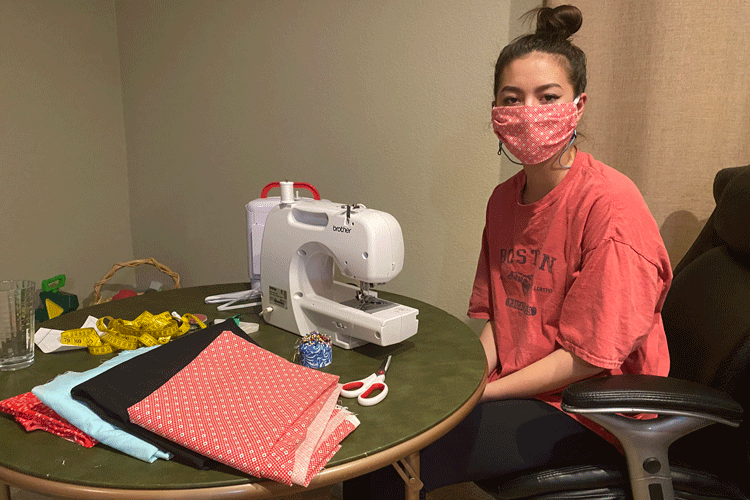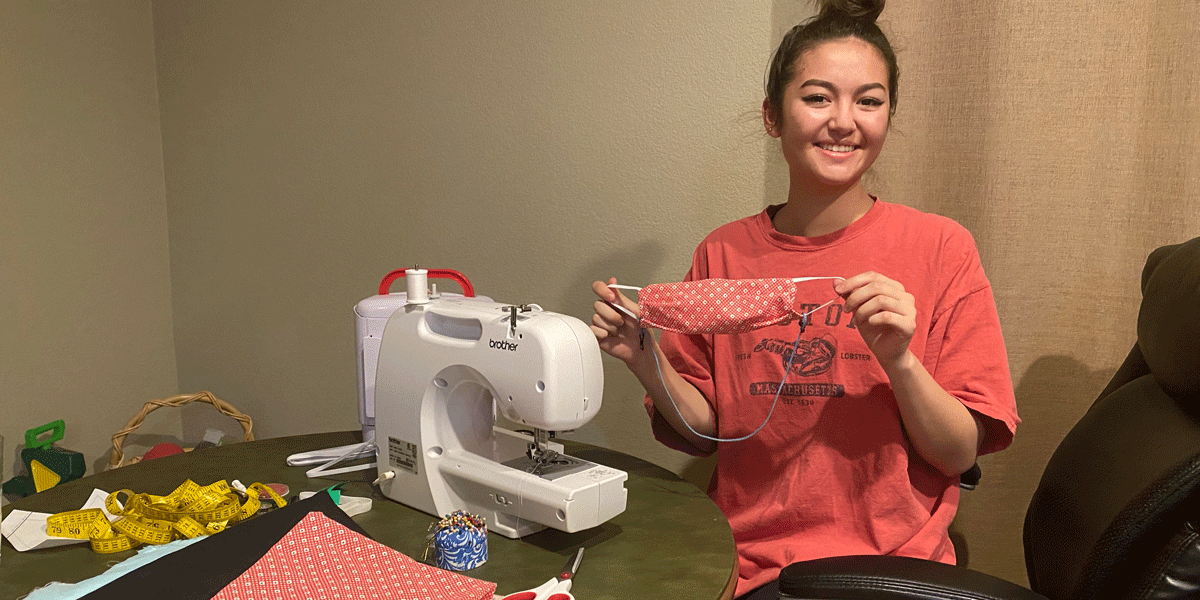Mariko Okazaki had a great plan for her Senior Community Impact Project (CIP) at Colorado Academy. Then COVID-19 changed everything.
Okazaki had planned to do a presentation to Seniors that would create awareness about the “fast fashion crisis.” It was a timely subject and an appropriate one. “People buy cheap, trendy clothes, and they’re not made to last,” Okazaki says. “When they don’t want them any longer, the clothes end up in landfills, and the fabric doesn’t degrade.” In fact, synthetic fibers, like polyester, nylon, and acrylic are essentially a type of plastic made from petroleum, which takes hundreds of years to biodegrade.
But after COVID-19 hit, Okazaki’s only option would have been a virtual presentation to the Upper School. To her that didn’t seem to have the level of impact she hoped for from her CIP. In a discussion with her mother, she came up with a new idea that would combine her passion for fashion design with her skill at sewing.
“I saw that many health care workers didn’t have enough face masks,” she says. “I realized that I could make face masks as a way to both involve myself in my community and keep people healthy.”

Making masks ahead of the curve
Weeks before Gov. Jared Polis and the Centers for Disease Control advised people to wear masks in public, Okazaki was ahead of everyone. She bought fabric. She searched online for different mask templates. She washed the fabric, sanitized the scissors and sewing machine, and then created her first prototype. It took a bit of tweaking (a mask isn’t very helpful when your glasses fog up), but eventually she landed on a successful model for both a male and female mask. She hopes to create one for children, as well.
Okazaki isn’t a lifelong seamstress. She developed her interest in fashion and sewing during third trimester of her Junior year in REDI Lab. “In REDI Lab, I focused on a way to express my identity, because I’m half Japanese and half white,” she says. “I tried a variety of media, including painting, ceramics, and fashion.”
The only hiccup during REDI Lab was that her family’s older sewing machine was in pieces and not functional. Enter fellow Senior Wyatt Spruell, who loaned her his family’s sewing machine on condition that she “return it before we graduate.” Today, she is working on that loaned machine.
Pivoting to benefit the community
It took Okazaki about 30 minutes to make the first masks. She hopes to reduce that amount of time and eventually produce about 200. She has friends at Colorado State University where there is a local outbreak of the virus waiting for her product, and she believes that now she will have little difficulty convincing people to use it. And she has benefitted from this new CIP also, she says, because it’s a “good project to keep busy during these weeks we are stuck in the house.”
Although she had to pivot from her original plan under very difficult circumstances, Okazaki sees an advantage to where she landed for her CIP.
“Had I talked about the fast fashion crisis, I don’t think as many people would be helped,” she says. “I love doing this, and I know it will be beneficial for everyone who receives a mask.”
